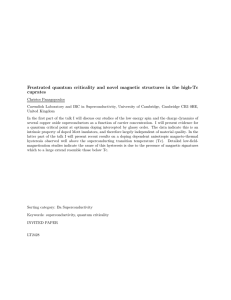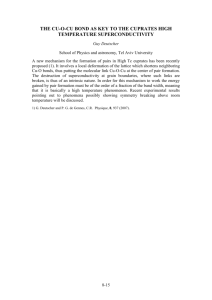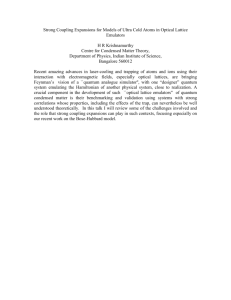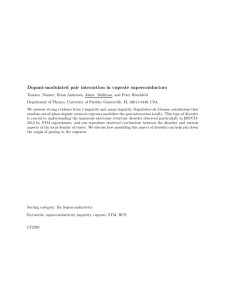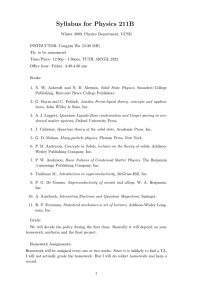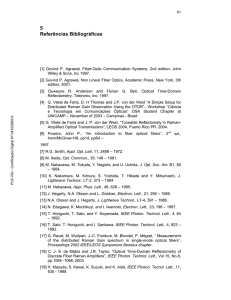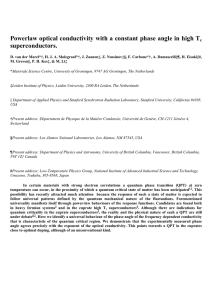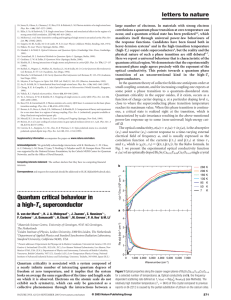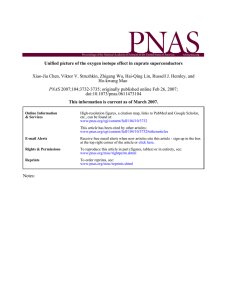Evidence of quantum criticality in electron-doped cuprates
advertisement
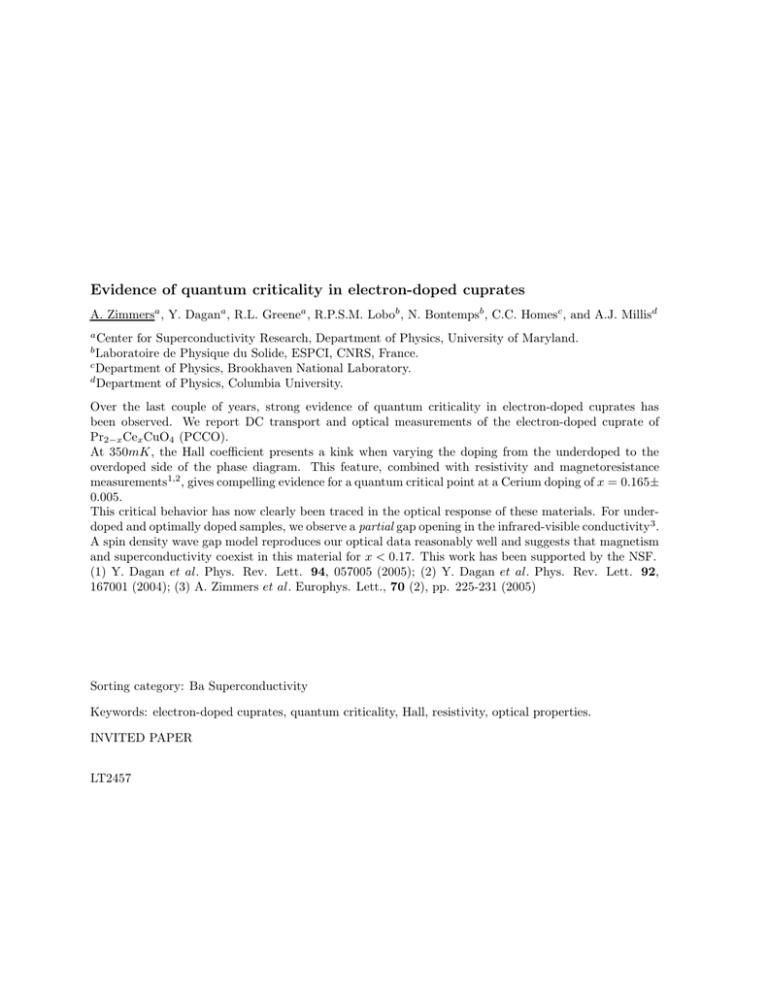
Evidence of quantum criticality in electron-doped cuprates A. Zimmersa , Y. Dagana , R.L. Greenea , R.P.S.M. Lobob , N. Bontempsb , C.C. Homesc , and A.J. Millisd a Center for Superconductivity Research, Department of Physics, University of Maryland. Laboratoire de Physique du Solide, ESPCI, CNRS, France. c Department of Physics, Brookhaven National Laboratory. d Department of Physics, Columbia University. b Over the last couple of years, strong evidence of quantum criticality in electron-doped cuprates has been observed. We report DC transport and optical measurements of the electron-doped cuprate of Pr2−x Cex CuO4 (PCCO). At 350mK, the Hall coefficient presents a kink when varying the doping from the underdoped to the overdoped side of the phase diagram. This feature, combined with resistivity and magnetoresistance measurements1,2 , gives compelling evidence for a quantum critical point at a Cerium doping of x = 0.165± 0.005. This critical behavior has now clearly been traced in the optical response of these materials. For underdoped and optimally doped samples, we observe a partial gap opening in the infrared-visible conductivity 3 . A spin density wave gap model reproduces our optical data reasonably well and suggests that magnetism and superconductivity coexist in this material for x < 0.17. This work has been supported by the NSF. (1) Y. Dagan et al. Phys. Rev. Lett. 94, 057005 (2005); (2) Y. Dagan et al. Phys. Rev. Lett. 92, 167001 (2004); (3) A. Zimmers et al. Europhys. Lett., 70 (2), pp. 225-231 (2005) Sorting category: Ba Superconductivity Keywords: electron-doped cuprates, quantum criticality, Hall, resistivity, optical properties. INVITED PAPER LT2457
